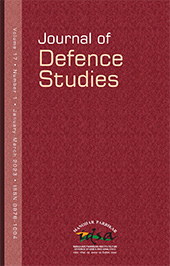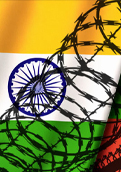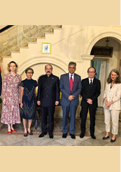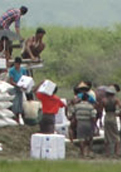Crossing Lines: Drugs, Insurgency and Disorder in the Indo-Myanmar Borderlands
The intensification of drug trafficking across the Indo-Myanmar border presents a significant challenge to both political and socio-economic stability in the region. This illicit trade not only exacerbates insurgent activities in Northeast India but also poses a serious threat to the country’s internal security. The porous and inadequately monitored border facilitates the movement of narcotics, creating a permissive environment for transnational criminal networks.1 These vulnerabilities have been further compounded by Myanmar’s enduring political instability following the 2021 military coup, elevating the issue to a matter of national security.2 Ethnic Armed Organizations (EAOs) of Myanmar operating along the border have increasingly engaged in drug trafficking as a means of financing their campaigns against the junta regime.
- Manashi Parashar
- October-December 2025














